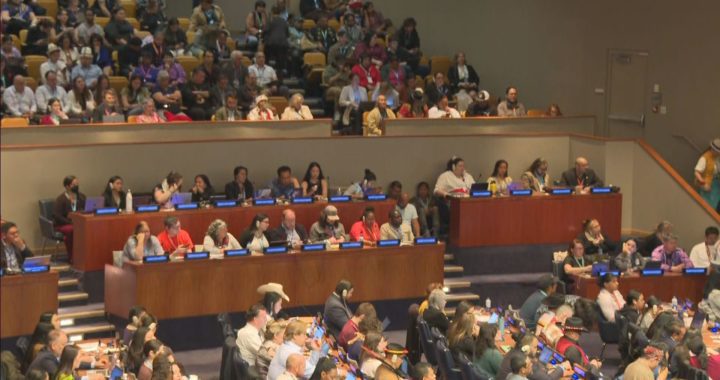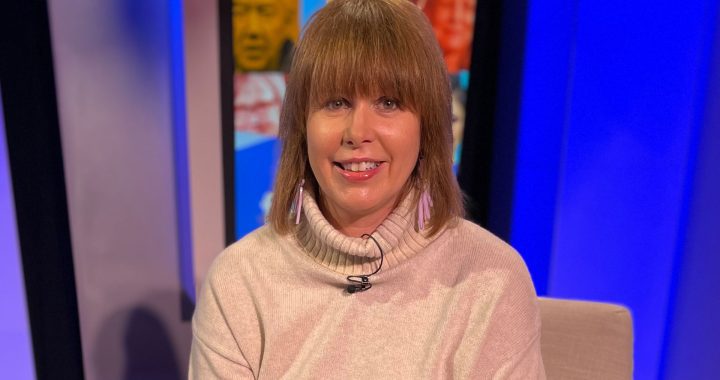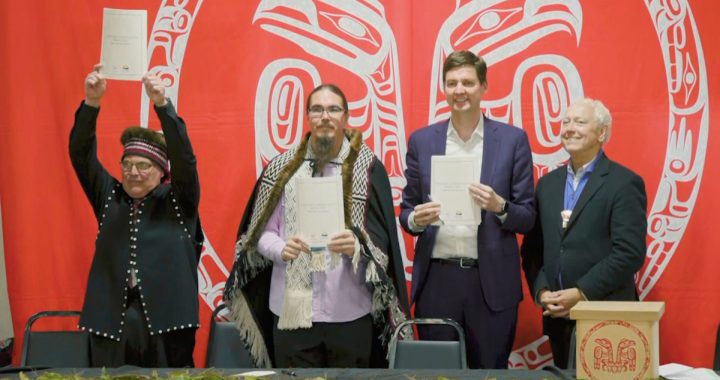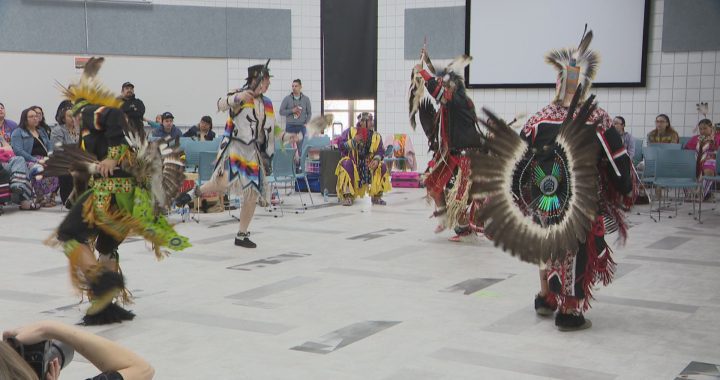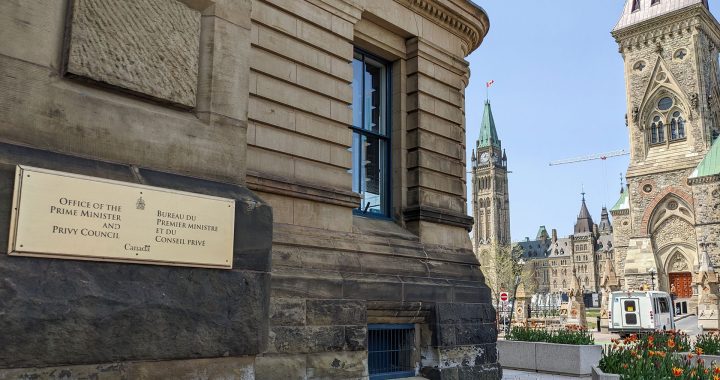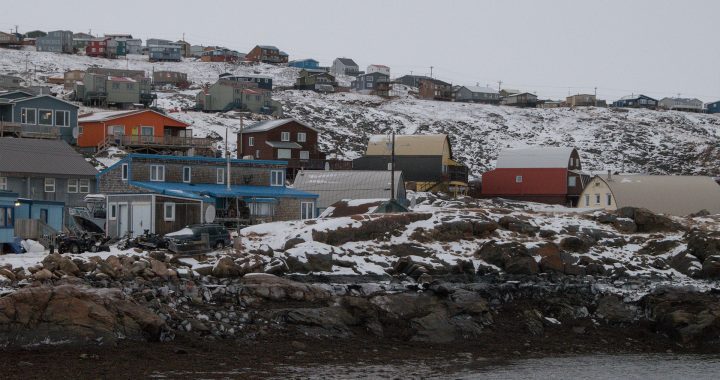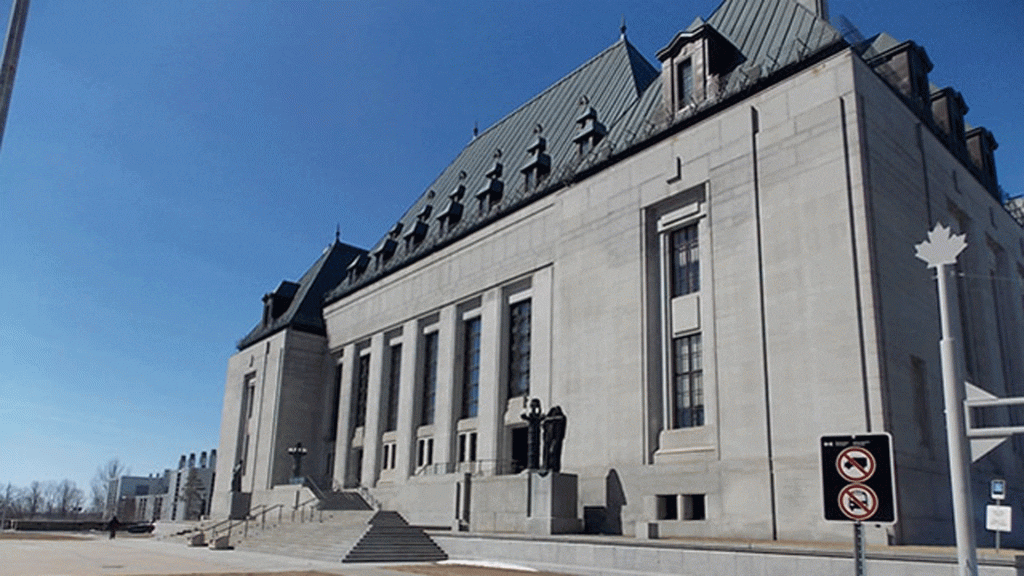
Arguments are set to be made at a Supreme Court hearing on Tuesday that will determine whether Vuntut Gwitchin First Nation has the right to require elected members of its chief and council live on settlement land.
“The law being challenged within our constitution is the requirement that if you become elected to the council you have to live within settlement land … that is Old Crow basically, the only village within out territory which is a fairly remote fly-in community,” Kris Statnyk lawyer for Vuntut Gwitchen First Nation told APTN News.
In the upcoming appeal, the Supreme Court is being asked to confirm that Indigenous law-making authority is protected under the Constitution and comes from Indigenous Peoples’ own inherent laws and practice.
The case is a test of Section 25 of the Charter of Rights and Freedoms: “The guarantee in this Charter of certain rights and freedoms shall not be construed so as to abrogate or derogate from any aboriginal, treaty or other rights or freedoms that pertain to the aboriginal peoples of Canada.”
This section appears to give primacy to the collective rights of Indigenous communities, over the rights and freedoms protected elsewhere in the charter.
In June 2020, Justice Ron Veale of the Yukon Supreme Court ruled in favour of the nation.
But, the judge also ruled that the VGFN’s self-governing authority, and its ability to create and enforce laws, was subject to oversight by the Canadian Charter of Rights and Freedoms.
“Our Constitution and General Assembly continue to guide us as we navigate this ongoing legal battle to protect our inherent right to self-government, our treaty with Canada, and the sanctity of our collective voice,” said former chief Dana Tizya-Tramm in a press release last spring.
“The potential implications of this case are far-reaching – they will not only affect the Vuntut Gwitchin people but all Indigenous nations with modern treaties in this country.”
APTN was told by a community spokesperson that the current chief, Pauline Frost, was not commenting on the case at the moment.
VGFN said it’s live streaming the Supreme Court hearing at the Darius Elias community hall for members who are interested in watching.
The nation’s requirement for members of council to live in their settlement was set up by a consensus resolution during their 2006 general assembly.
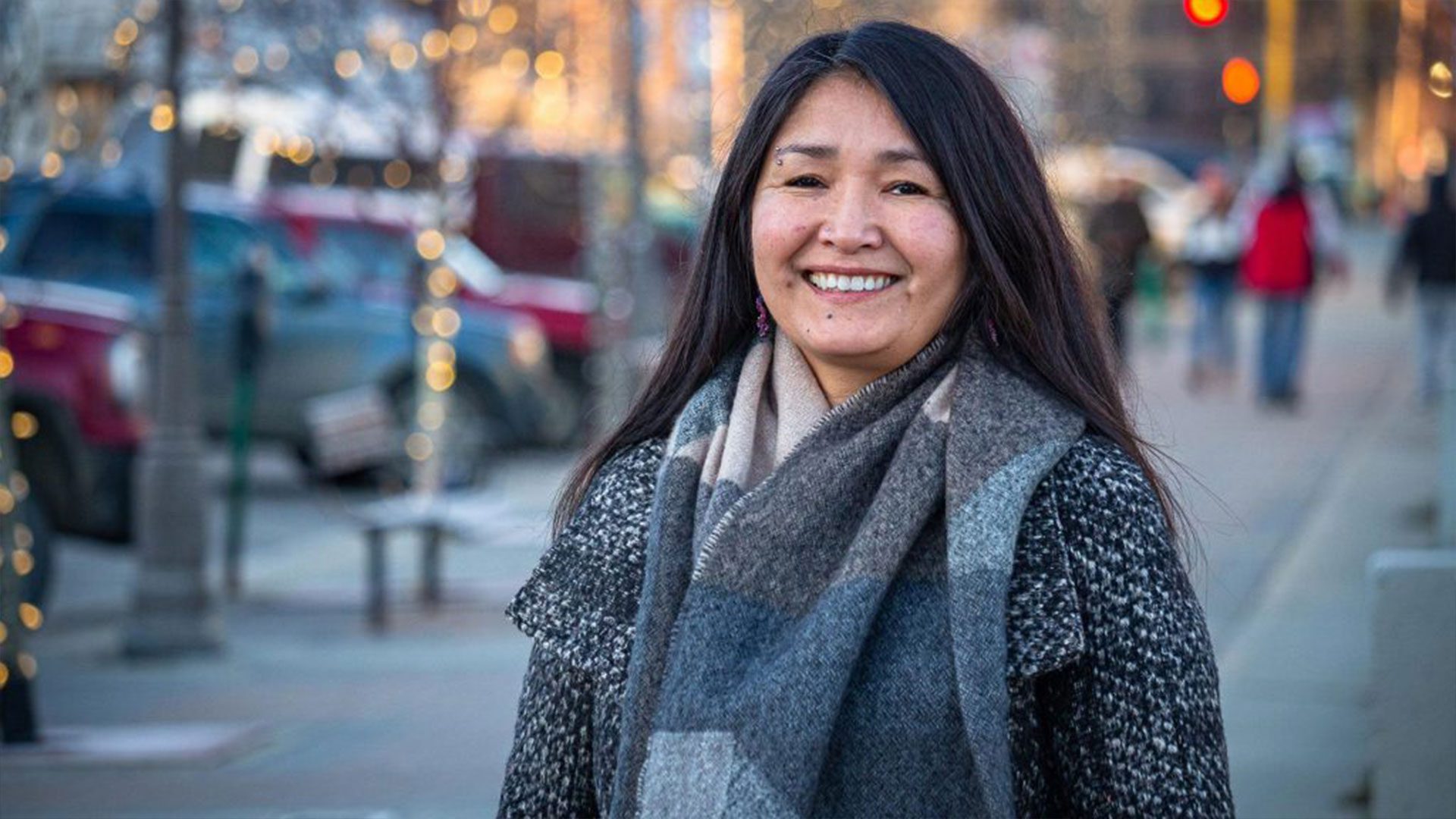
Two VGFN citizens, Cindy Dickson and Sandra Charlie filed nomination papers in October 2018 to sit on the council outside of Old Crow, according to court documents.
Dickson sought a dispute resolution process but no internal process was offered.
The residency requirement was later amended to allow councillors to relocate to Old Crow “within 14 days” of being elected, though they are still required to live on settlement lands during their council term.
Both nominations were rejected due to the nation’s constitution that required members of the council to reside in settlement land.
Dickson filed a petition to the Supreme Court of Yukon in 2019, arguing that the residency requirement breached her rights under the Charter of Rights and Freedoms.
In her submissions to the court, Dickson said it’s not possible for her to move to Old Crow for personal and professional reasons – such as a son with a medical condition that requires he is close to the Whitehorse General Hospital.
Dickson is a single mother who moved to Whitehorse to further her education, and in court documents said she wants to give back to her community.
Read More:
First Nations woman in the Yukon taking residency requirement to Supreme Court of Canada
As APTN has previously reported that people in remote communities often need to travel more than 400 km to access assisted living facilities in Yukon.
Old Crow is a small community of around 200 people located 800 km north of Whitehorse.
Finding alternate housing can be difficult. Dickson said in court documents that the home she co-owns with her uncle is old and in need of serious repairs.
In Veale’s 73-page decision he wrote:
“In my view, it cannot be discriminatory to require a legislator to reside in the Settlement Lands which will be the focus of the legislative function of Chief and Council. Nor is it discriminatory to require the legislators to be subject to the laws enacted by Chief and Council.”
Veale also noted that the residency requirements did not affect the voting rights of VGFN citizens who live off of the settlement land.
But, he also ruled that the First Nation’s requirement that any citizen living outside of Old Crow must move to the community or settlement land within 14 days was unconstitutional.
Advocacy from other groups during this appeal.
This case has created a lot of interest from multiple associations that deal with Indigenous governance issues. The Band Members Alliance and Advocacy Association of Canada (BMAAAC), who said they are a voice for those band members that have lost their voice, “as a result of lateral violence, fear of retribution by band councils, and discriminatory practices, often under the veneer of Aboriginal custom and governance.”
BMAAAC in their court submission said that this court appeal will “be determining what charter rights if any Indigenous peoples enjoy.”
“It is a false dilemma to suggest that obliging [I]ndigenous governments to observe certain basic rights and freedoms guaranteed in the Charter is unwarranted interference in the right to self-determination,” the documents said.
But Statnyk said this is not what VGFN is trying to do.
“Our community, our structure and system of self-government is really quite different from Indian Act band council governance where all power is concentrated into an elected council.
“We have three branches of government that have a distribution of power and responsibility … we have a general assembly which is comprised of all of our citizens and we meet once a year as required in our constitution.
“We give direction to the council in terms of priority … Significantly it is also this body that has the sole power to change and amend the constitution,” said Statnyk.
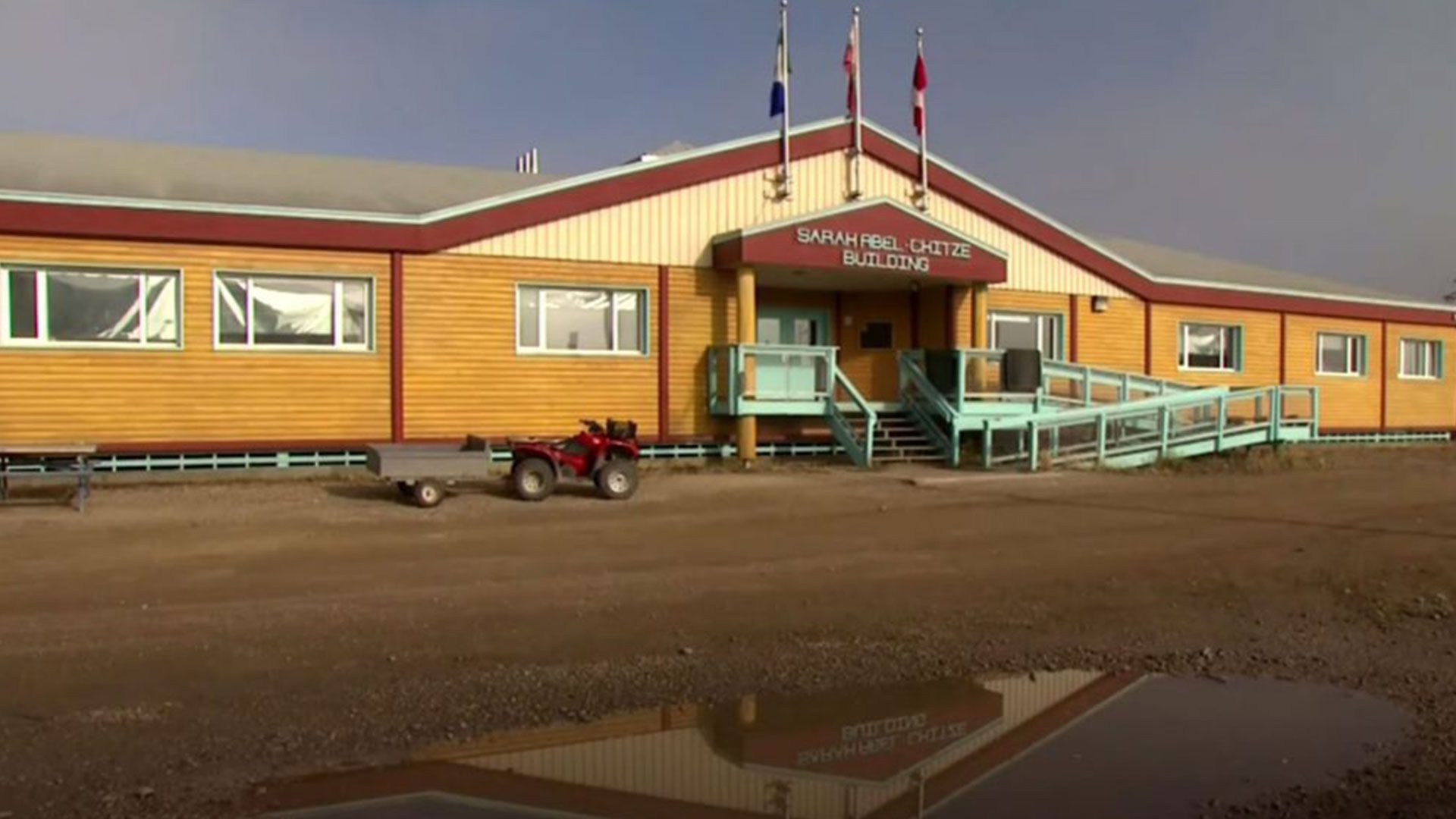
The VGFN’s submission to the Supreme Court argued, “The question is not whether a First Nation should protect basic rights and freedoms. It is whether a self-governing First Nation’s constitution containing robust human rights protections, should be subjugated to an external set of laws, not agreed to and not part of the Indigenous legal order.”
A number of governments are applying as interveners, which is a process that allows an organisation or person who is not directly involved to participate in a court proceeding.
Yukon’s government said the Charter applies in Indigenous communities.
The federal government urges a flexible approach.
“[T]o allow courts to take into account considerations relevant to the specific governance context, including Indigenous perspectives and the distinct nature of Indigenous governing bodies,” according to their submission.
Alberta, through the attorney general, said, however, that Indigenous rights prevail in the case of a “true irreconcilable conflict” with a Charter right.
Statnyk explained that in addition to the desires of elders and community members to have people who want to be a part of the council, from a traditional view, the land is where citizens of VGFN draw their power.
“It’s our land. We have a deep connection to our territory and our authority comes from our relationship to our land,” said Statnyk.
“The elders in particular really wanted all our people to recognize our homelands as our home and bring us back to our community so we can be viable into the future.”





